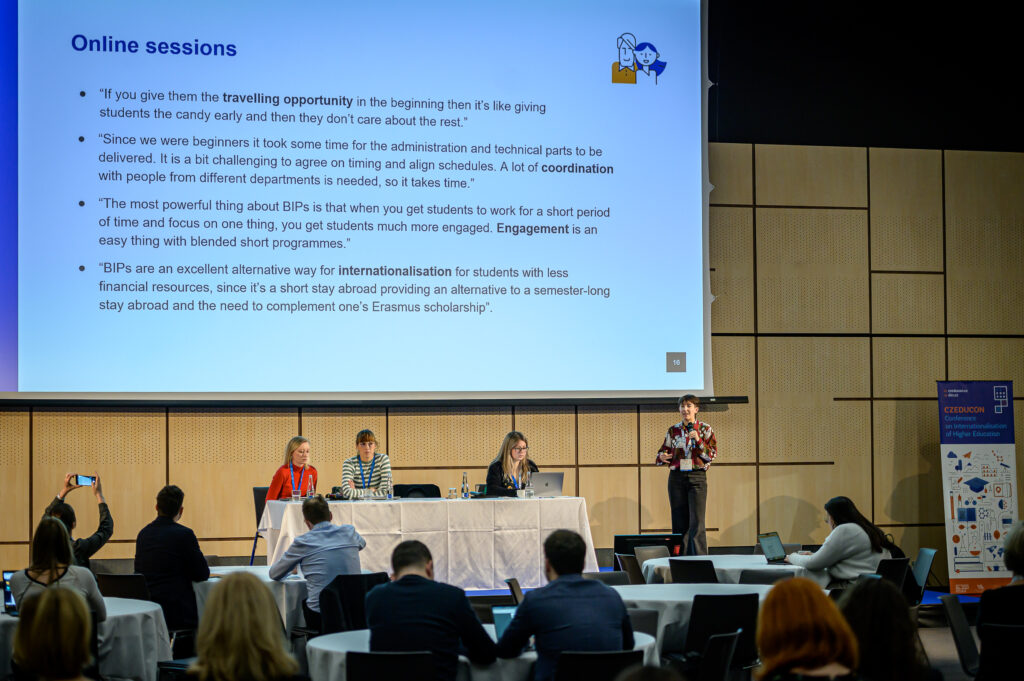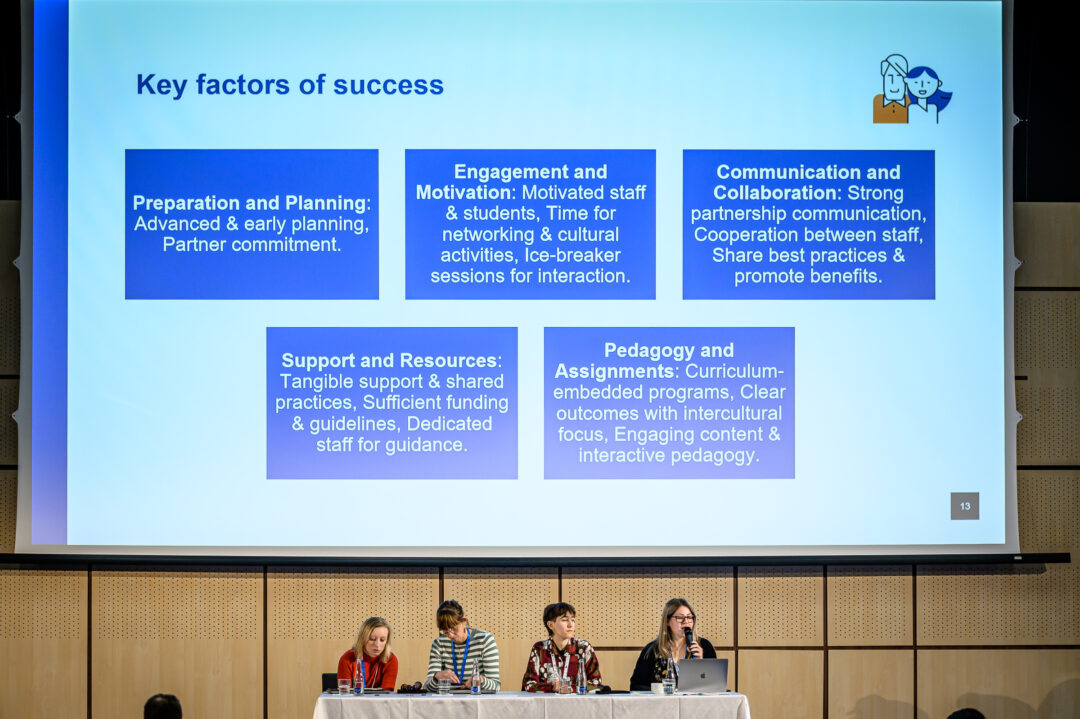The HIBLend project was successfully showcased at the 6th edition of CZEDUCON, the Conference on the Internationalisation of Higher Education, held in Prague on November 18-20th. Angeliki Psychogyiou, the project coordinator, and Salome Dermati from the EUF co-delivered a session titled “Student Blended Mobility in Practice: How to Deliver the Best Digitalisation Has to Offer / Navigating BIP Success: Lessons from MENDELU’s Journey”. The session, which was attended by approximately 80 participants — primarily administrative staff involved in international mobility from universities across Czechia, Poland, Germany, Belgium, Slovakia, and beyond — was highly rated for its engaging content and practical insights.
The session began with a presentation on key insights from the HIBLend survey and focus groups. These findings explored the main motivations for embarking on blended mobility, identified evaluation gaps, and highlighted key success factors. Amongst the concluding messages were:
- Promoting stronger advocacy for professional development and (digital) training for faculty and staff involved in blended mobility,
- Recognising the strategic value of blended mobility for internationalisation,
- Emphasising early planning and clear internal communication,
- Exploring flexible credit recognition solutions.

Following this, colleagues from Mendel University in Brno shared their firsthand experiences of hosting 10 Blended Intensive Programmes (BIPs) over the past three years. They offered valuable insights into overcoming communication barriers between rectorates and faculties, as well as improving the design and delivery of online learning components.
In the closing Q&A session, attendees were invited to share their biggest institutional challenges in implementing BIPs. Topics included the need for stable funding, strategies for enhancing student engagement, and the importance of integrating evaluation mechanisms into institutional practices for blended mobility.

